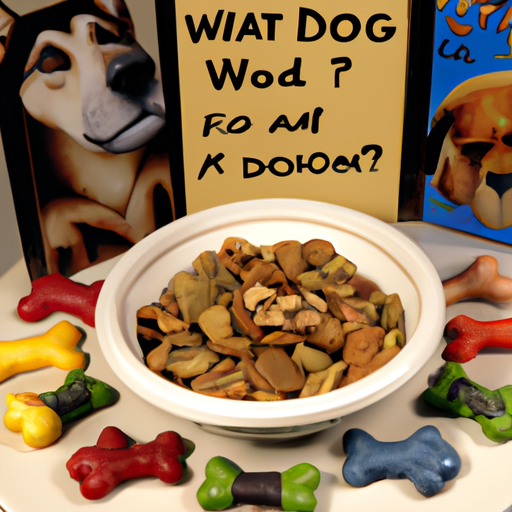As a caregiver to your furry friend, you might have asked this question more than once, “What do dogs eat?” It’s a broad topic, but we will dive deep into the details to provide you with a comprehensive guide. Understanding your dog’s dietary needs is crucial for a healthy and happy life for your pet.
Table of Contents
- Understanding Your Dog’s Dietary Needs
- Essential Nutrients for Dogs
- Types of Dog Diets
- Human Foods That Dogs Can and Can’t Eat
- Frequently Asked Questions
Understanding Your Dog’s Dietary Needs
In the wild, dogs are omnivores, which means they eat both meat and plant-based foods. Domesticated dogs, though, have dietary needs that are more complex. While they still require a significant amount of meat protein, they also need a variety of other nutrients that can come from fruits, vegetables, and grains.
It’s important to consider your dog’s age, breed, size, and health status when determining their diet. For instance, puppies require more calories and nutrients than adult dogs, as they are growing and developing.
Essential Nutrients for Dogs
Your dog’s diet needs to be balanced, which means it should include the following essential nutrients:
-
Proteins: Proteins are the building blocks of your dog’s body. They are essential for growth, repair, and energy. Animal-based proteins like meat, poultry, fish, and eggs are good sources for dogs.
-
Carbohydrates: While not essential for dogs, carbohydrates provide additional energy and can be found in foods like grains, vegetables, and fruits.
-
Fats: Fats provide the most concentrated source of energy for dogs. They also help keep your dog’s skin and coat healthy.
-
Vitamins and Minerals: Vitamins and minerals are necessary for various bodily functions. They are typically provided in a balanced commercial dog food diet.
| Nutrient | Function | Sources |
|---|---|---|
| Protein | Growth, repair, energy | Meat, poultry, fish, eggs |
| Carbohydrates | Energy | Grains, vegetables, fruits |
| Fats | Energy, skin and coat health | Animal fats, plant oils |
| Vitamins and Minerals | Various bodily functions | Balanced commercial dog food |
Types of Dog Diets
There are several types of diets you can choose from for your dog:
-
Commercial Dry Food (Kibble): This is the most common type of dog food. It’s convenient, easy to store, and comes in a variety of flavors and types.
-
Commercial Wet Food (Canned): Wet food is often more appealing to dogs because of its texture and smell. It can be a good option for dogs with dental issues or picky eaters.
-
Raw or Homemade Diets: These diets can provide a lot of benefits, but they also require careful planning to ensure they are nutritionally balanced.
-
Specialized Diets: These are diets designed for dogs with specific health conditions, like allergies or kidney disease.
Human Foods That Dogs Can and Can’t Eat
While it’s tempting to share your food with your furry friend, not all human foods are safe for dogs. Here are some safe and unsafe foods:
-
Safe Foods: Cooked lean meats, carrots, cucumbers, apples (without seeds), blueberries, and rice.
-
Unsafe Foods: Chocolate, grapes, raisins, onions, garlic, macadamia nuts, and any foods containing xylitol.
Frequently Asked Questions
1. Can dogs eat dairy products?
Some dogs can tolerate small amounts of dairy, while others may have lactose intolerance. It’s best to introduce dairy products in small amounts and monitor your dog’s reaction.
2. How often should I feed my dog?
Most adult dogs should be fed twice a day, while puppies usually require three to four meals a day.
3. Should I feed my dog a grain-free diet?
Grain-free diets can be beneficial for dogs with specific allergies, but they are not necessary for all dogs. Always consult your vet before changing your dog’s diet.
In conclusion, understanding what dogs eat involves more than just knowing what foods are safe or unsafe. It also involves understanding their nutritional needs and how to meet them. With this guide, you are now more prepared to make the best dietary choices for your beloved pet.



